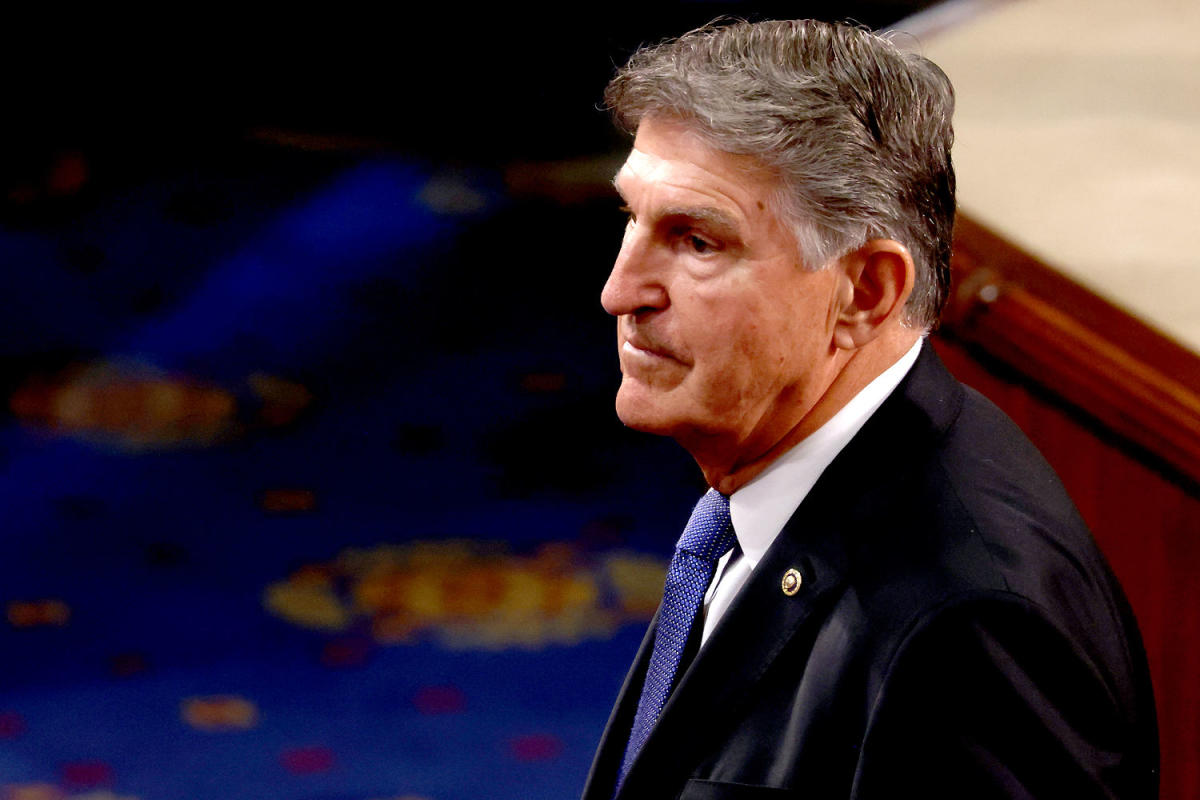
Sen. Joe Manchin’s lengthy career in public service, which began with a seat in West Virginia’s state legislature 42 years ago this week, has very nearly reached the end. The independent senator didn’t run for re-election this year, and in a month’s time, he’ll leave Capitol Hill.
But before he goes, Manchin has one more bad idea to pitch. The Hill reported:
Sen. Joe Manchin (I-W.Va.) said Monday in an interview with CNN that President Biden should pardon President-elect Trump. “What I would have done differently, and my recommendation as a counsel woulda been, ‘Why don’t you go ahead and pardon Donald Trump, for all his charges?’” Manchin said of Biden’s pardoning of Hunter Biden when talking to CNN’s Manu Raju.
The West Virginian isn’t the only one thinking along these lines: A week before Manchin made the on-camera comments, The Washington Post published a related piece from the American Enterprise Institute’s Marc Thiessen and Danielle Pletka making the case for such a pardon. (This is a subject the pair apparently takes quite seriously: In June 2023, Thiessen and Pletka wrote a separate Washington Post opinion piece that also called on the incumbent Democratic president to pardon his Republican predecessor/successor.)
Advertisement
Advertisement
Those who make this argument tend to rely on predictable claims: Biden could pardon Trump in the interest of magnanimous healing, advancing the cause of bipartisan comity. Such a move would, proponents suggest, promote post-election unity, and help the country advance past a period of rancor and division.
Biden, in other words, could and should play the role of Gerald Ford, who pardoned Richard Nixon after he resigned in disgrace following the Watergate scandal.
Does the pitch have merit? No, it does not.
Right off the bat, it’s worth emphasizing that Biden has already vowed not to do this. In May 2020, during his campaign, the Delaware Democrat participated in a virtual town hall-style event on MSNBC and fielded a question from a concerned voter who asked whether Biden would pledge not to pardon Trump if elected.
Advertisement
Advertisement
“Absolutely, yes,” the then-candidate replied. “I commit.”
Three years later, as GOP presidential candidates talked up the idea of pardoning Trump if they were elected, reporters asked Biden about his stance on the issue. The president literally laughed at the question, suggesting he hadn’t changed his mind.
What’s more, it’s not a secret that the Republican president-elect doesn’t exactly need a pardon: The Justice Department has a long-standing policy that says a sitting president can’t be prosecuted, which is why special counsel Jack Smith and his team have grudgingly agreed to wrap up their compelling, backed-by-voluminous-evidence criminal cases against Trump.
There’s also the relevance of partisan asymmetry: As Biden faces calls to pardon Trump to advance the cause of bipartisan healing, Trump is choosing right-wing radicals for key administration posts, making plans to retaliate against his perceived foes, and issuing Thanksgiving declarations condemning “Radical Left Lunatics who have worked so hard to destroy our Country.”
Advertisement
Advertisement
More in Politics
There is a national political leader who should probably hear more about the virtues of bipartisan unity, but it’s not Biden.
As my MSNBC colleague Hayes Brown recently summarized, “In this construction, the unity and healing that the country needs are due to the actions of both sides of the aisle — but the only solution is forgiveness from one side. The trouble is there is no such thing as a unilateral reconciliation; it is a dialogue by its very nature. It’s true that Biden offering a pardon for Trump could be framed as outreach to the president-elect’s followers. But what, then, could be expected from this show of good faith? Are there reciprocal steps that would bring the MAGA movement away from the edge and toward a more united country?”
But even if we put all of this aside, the most important element of this debate is the importance of accountability: It’s not in the nation’s interests to let an accused felon get away with dangerous and unprecedented alleged crimes simply because it might make assorted partisan feel better. On the contrary, it would signal to future presidents that they, too, should expect to be pardoned for serious felonies, creating an unrestrained, accountability-free dynamic.
I don’t doubt that Biden will continue to hear additional advice along these lines in the coming days and weeks. For everyone’s benefit, here’s hoping the outgoing incumbent ignores the suggestions.
This article was originally published on MSNBC.com
EMEA Tribune is not involved in this news article, it is taken from our partners and or from the News Agencies. Copyright and Credit go to the News Agencies, email news@emeatribune.com Follow our WhatsApp verified Channel



